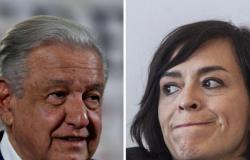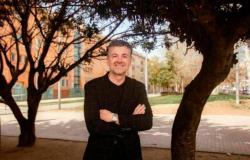
There are parts that are canonical horror: “And when the nurse came in to treat my injured eye, Eliza and the others saw what looked like a special effect from a science fiction movie, the eye very distended, protruding from the socket and hanging on the cheekbone like a soft-boiled egg.” Salman Rushdie lay on a respirator, he had wounds in his chest, metal staples in his throat and cheek, a section of his intestine had been removed, his neck looked swollen, dark with blood, and his heart was…
Subscribe to continue reading
Read without limits
There are parts that are canonical horror: “And when the nurse came in to treat my injured eye, Eliza and the others saw what looked like a special effect from a science fiction movie, the eye very distended, protruding from the socket and hanging on the cheekbone like a soft-boiled egg.” Salman Rushdie lay on a respirator, he had wounds in his chest, metal staples in his throat and cheek, a section of his intestine had been removed, his neck looked swollen, dark with blood, and his heart was “bruised.” . His partner prevented him from looking in the mirror for a long time.
The writer remembers it as that scene of The seventh seal, by Ingmar Bergman, in which the knight plays chess with death, trying to delay the final checkmate. It wasn’t clear that he would survive, but he survived. He lost that horror movie eye; but not life. Rushdie collects in his new book, Knife. Meditations after an assassination attempt (Random House, translation by Luis Murillo Fort), the first-person experience of suffering a terrorist attack. Of being stabbed fifteen times; that seem infinite.
It happened in August 2022, when the British author of Indian origin was giving a conference in Chautauqua, in the state of New York. There the aggressor Hadi Matar (in the story he prefers to call him only A.) got on stage and stabbed the author. Rushdie had appeared on stage in an amphitheater that could seat four thousand people, which was quite full, and in which he had received loud applause. Then out of the corner of his right eye (“the last thing that eye was going to see”) he perceived a man dressed in black, with a balaclava, running through the stalls. He stood paralyzed. He still wonders why.
34 and a half years earlier, in 1989, Ayatollah Khomeini, leader of the Iranian revolution and representative of Allah on earth, had issued a death sentence (through a fatwa) against Rushdie for the publication of satanic verses, which he considered a blasphemous text. He asked that the Muslims kill him wherever he was. Seeing the attacker, after so much time, Rushdie thought:
“I mean, it’s you.” Here you are.
Somehow he had gotten used to living with that threat and he couldn’t believe that now, so many years later, death was going to come to him on that stage. The most striking thing was that, at first, the public had also been paralyzed. Many thought that it was a performance (quite macabre, by the way) to exemplify the content of the conference, which was, precisely, the persecution that some authors suffer for exercising their freedom of expression.
“I did not see the knife, or at any rate have no memory of it,” Rushdie writes. He didn’t know if it was long or short, or a hunting knife or a stiletto, or a serrated knife like those used to cut bread, or a common kitchen knife. In any case, it served its purpose: to cut Rushdie’s flesh, attack his vital organs, endanger his life. “Why didn’t I fight? Why didn’t I run away? “I stayed still like a piñata and let him destroy me,” he says in the book. First a blow to the jaw, then wounds to the hands, stab wounds to the neck, attacks to the chest, to the left corner of the mouth, even to the right thigh. The stab wound in the right eye reached the optic nerve. “That eye would never see again.”
The attack, which lasted almost half a minute (the time it takes to recite an Lord’s Prayer or a Shakespearean sonnet, the author observes), ended when moderator Henry Reese, a man in his seventies, heroically came to subdue the aggressor (who was 24), an action that was joined by other people in the audience whom Rushdie cannot even name. The attacker did not know much about satanic verses, had stated that he had only read a couple of pages. In the text, Rushdie describes religion as a “medieval form of unreason,” which, combined with contemporary weaponry, poses “a real threat to our freedoms.”





